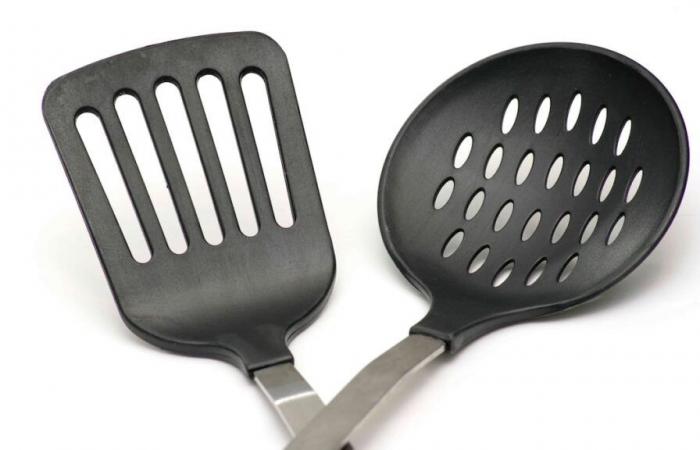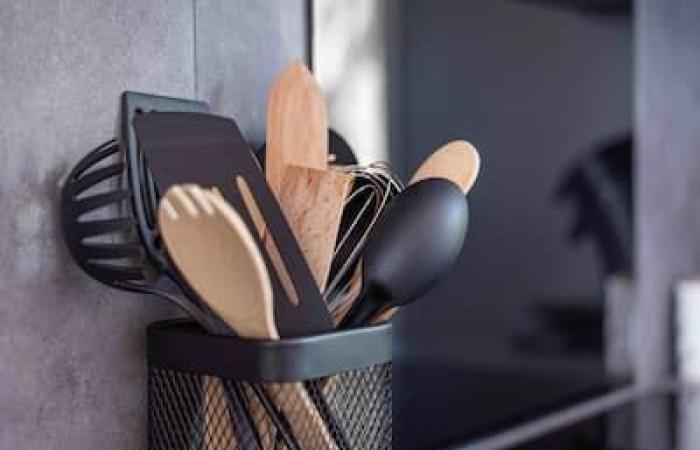Spatulas, spoons, whisks, ladles: the black plastic kitchen utensils you use every day could be quietly poisoning you. Here’s what you need to know to protect your health.
What’s the problem with black plastic?
As part of a study published in October in the scientific journal Chemospherescientists analyzed everyday products made from black plastic, including kitchen utensils.
They found that up to 85% of these items could contain worrying levels of toxic chemicals.
Researchers particularly point the finger at flame retardants, chemicals found in black plastic used in the manufacture of electronic devices to prevent them from catching fire.
The problem is that flame retardants are released in greater quantities when heated. There are therefore risks of contamination if these chemicals end up in our kitchen utensils.
What are the health risks?
Scientists do not agree on the degree of contamination attributable to utensils used for cooking.
The authors of the study published in October also had to correct themselves, since they had initially included contamination rates that were much too high due to a typing error.
Experts urge caution, however: Past studies have linked exposure to flame retardants to increased risks of cancer, endocrine disruption, and reproductive health or neurodevelopmental problems.
Pregnant women exposed to these chemicals also have a higher risk of premature birth, according to a study published earlier this year in the journal Environmental Health Perspective.
Why are these products found in kitchen utensils?
This is because of poor recycling practices, experts say.
Since black plastic items are difficult to recycle, they are usually sent to landfill.
At the same time, electronic items, such as televisions and computers, tend to be collected in countries where recycling is less regulated.
Since there is a shortage of recycled black plastic to make kitchen utensils, producers are turning to scrap from old electronic objects, which are more easily accessible.
How to minimize risks?
Avoid leaving plastic utensils in hot pots or pans, experts advise. It’s also best to throw away black plastic items that are cracked or dented.
Wooden utensils, especially bamboo, would be the ideal alternative option, because they are durable, inexpensive and easy to find.
ctdphotographie – stock.adobe.com
Objects made of stainless steel can also do the trick, provided you do not use them in pans or cauldrons coated with a non-stick coating.
It’s still unclear exactly what risks are associated with using silicone utensils, which are also made from plastic, experts say. It would therefore be preferable to use them in specific contexts, such as to unmold or scrape the bottom of a pan that has been cooled.







